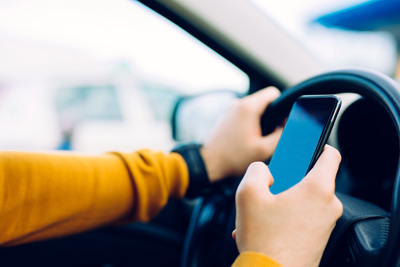Usage of auto manufacturers’ mobile apps for electric vehicles has increased, according to the J.D. Power 2023 U.S. OEM EV App Report, released May 30.
Even though app usage by owners of gas-powered vehicles has increased during recent years, EV owners are still likely to use their apps more often, especially for needs such as viewing active charging status or checking range information. Nearly two-thirds (66%) of EV owners use their brand’s app at least half of the time they drive, which is indicative of its increasingly important role in the EV ownership experience.
J.D. Power is increasing its presence in the field of customer satisfaction with automotive mobile apps as the industry faces ongoing challenges to provide a compelling customer experience. Acknowledging the increase of EV sales and model offerings, the report evaluates the all-important user experience with a brand’s smartphone app.
“Even though EV app usage has increased over time, the app features EV owners say are most important to them are among those that have the lowest satisfaction,” said Jason Norton, senior manager of global automotive consulting at J.D. Power. “Manufacturers need to focus on improving the performance of the areas that matter most to EV owners in order to maximize their impact and elevate the user experience.”
Key Findings
Focus on what’s important: Speed and ease of navigation are the two most important app usage elements for EV owners, yet these are among the lowest-scoring areas overall. Conversely, an app’s visual appeal is least important to EV owners yet ranks near the top in satisfaction. This suggests manufacturers need to do a better job of focusing on areas that are most critical to app users to provide the most engaging and productive experience.
Apps are a big deal: More than half (59%) of Tesla owners say the availability of the smartphone app had at least a moderate effect on their decision to purchase, compared with 35% of non-Tesla EV owners. Furthermore, 21% of Tesla owners say it had a major effect vs. just 7% of non-Tesla EV owners. As Tesla owners have often been on the forefront of EV trends, this suggests the industry must do a better job of communicating the availability and effect of their smartphone apps to help attract interested EV shoppers.
Charge ahead: More than two-thirds (68%) of EV owners say that they use their app at least every other drive to monitor the charging process and viewing their available range, which is in line with 2022 results. While owners predominately charge their vehicles at home, 85% say they still desire the ability to find charging stations in case they need one while away from home.
Feature desirability is high---and owners want more: Of the 25 most common app features, 19 features are cited as desirable by more than 70% of EV owners. However, only eight features are widely available throughout the industry.
Help wanted: Most owners receive help from the dealer or manufacturer in explaining or setting up their smartphone app. More than eight in 10 (85%) EV owners say they received some sort of assistance, and 90% of premium brand owners (excluding Tesla) say they received dealership support. EV app features need to be explained to owners by dealership personnel, as highlighted by the 25% of owners who say they have never used their EV app because they didn’t know how to do so.
App connection concerns: More than one-third (37%) of EV owners say they had some type of connection-related problem with their app in the past 30 days, up from 32% a year ago. This may suggest that increasing app usage is straining some manufacturers’ app network capacity.
Report Ranking
Tesla ranks highest among manufacturers’ EV mobile apps with a score of 838 (on a 1,000-point scale). Mercedes me connect (833) ranks second and MyHyundai(827) ranks third. The report average is 741.
The U.S. OEM EV App Report, formerly the U.S. OEM EV Benchmark Study, gauges EV owners’ experience with their brand’s mobile app. Insights are derived from surveying EV owners and an assessment of the most relevant EV mobile apps. Results are based on a standardized assessment approach relying on more than 340 best practices for vehicle apps that include more than 60 EV-specific attributes.
The report includes apps from the top 20 award-eligible brands that sell EVs in the United States; five profiled EV brands in Europe; and eight profiled EV brands in China. Additionally, almost 1,400 EV owners in the U.S. were surveyed in April-May 2023 to gather insights on app usage, feature desirability and app overall execution.
Source: J.D. Power










Abby Andrews